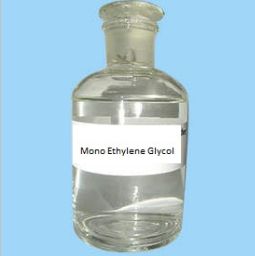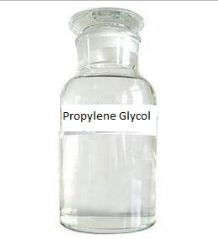Glycols
Leading Manufacturers, Exporters, Wholesaler and Distributor of Mono Ethylene Glycol and Propylene Glycol from Hennessy Road.
| Business Type | Exporter, Supplier |
Preferred Buyer From
| Location | Hong Kong |
Mono Ethylene Glycol (C2H6O2) is a colorless, odorless, viscous dihydroxy alcohol. It has a sweet taste, but is poisonous if ingested. Ethylene glycol is the most important glycol commercially available and is manufactured on a large scale in the United States. It is used as an antifreeze and coolant, in hydraulic fluids, and in the manufacture of low-freezing dynamites and resins.
Uses :
Ethylene glycol has many uses, including as antifreeze in cooling and heating systems, in hydraulic brake fluids, and as a solvent. Acute (short-term) exposure of humans to ethylene glycol by ingesting large quantities causes three stages of health effects: central nervous system (CNS) depression, followed by cardiopulmonary effects, and later renal damage. The only effects noted in one study of individuals exposed to low levels of ethylene glycol by inhalation for about a month were throat and upper respiratory tract irritation.
| Business Type | Exporter, Supplier |
Preferred Buyer From
| Location | Hong Kong |
Propylene glycol (C3H8O2) is a clear, colorless and liquid. usually a tasteless, odorless, and colorless clear oily liquid that is hygroscopic and miscible It is manufactured by the hydration of propylene oxide. Propylene glycol contains an asymmetrical carbon atom, so it exists in two. The commercial product is a racemic. Pure optical isomers can be obtained by hydration of optically pure.
Uses :
Propylene glycol is used as a solvent for intravenous, oral, and topical pharmaceutical preparations It is generally considered safe. However in large doses it can be toxic, especially if given over a short period of time. Intravenous contains the largest amount of propylene glycol of commonly used drugs. In adults with normal liver and kidney function, the terminal half-life of propylene glycol ranges from 1. 4 to 3. 3 hours.
Propylene glycol is metabolized by the liver to form Propylene glycol induced intoxication can also mimic sepsis or systemic inflammatory response syndrome (SIRS). Patients suspected of having sepsis with negative cultures should be evaluated for propylene glycol toxicity if they have been exposed to high dose & other medications containing this solvent.


